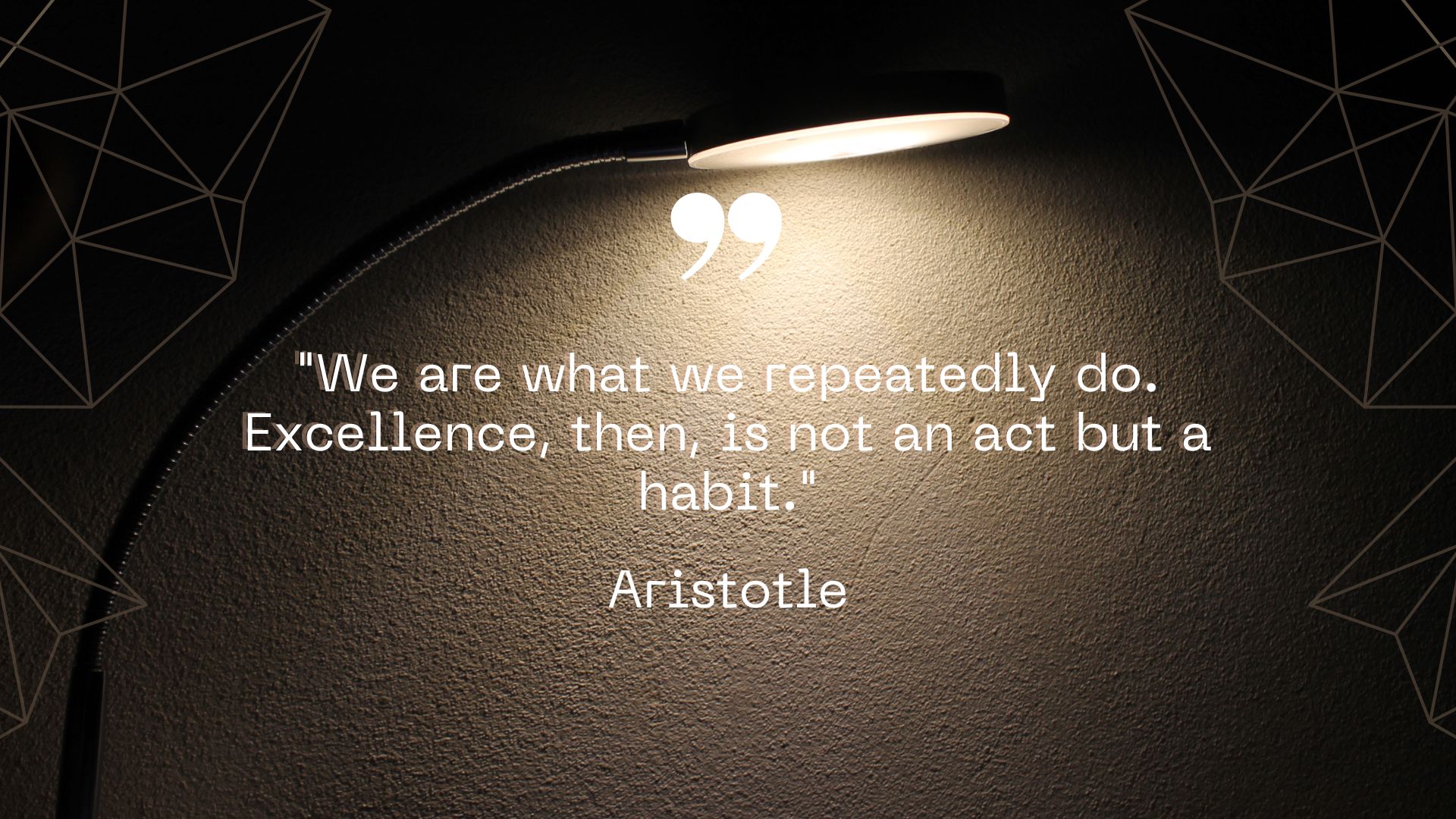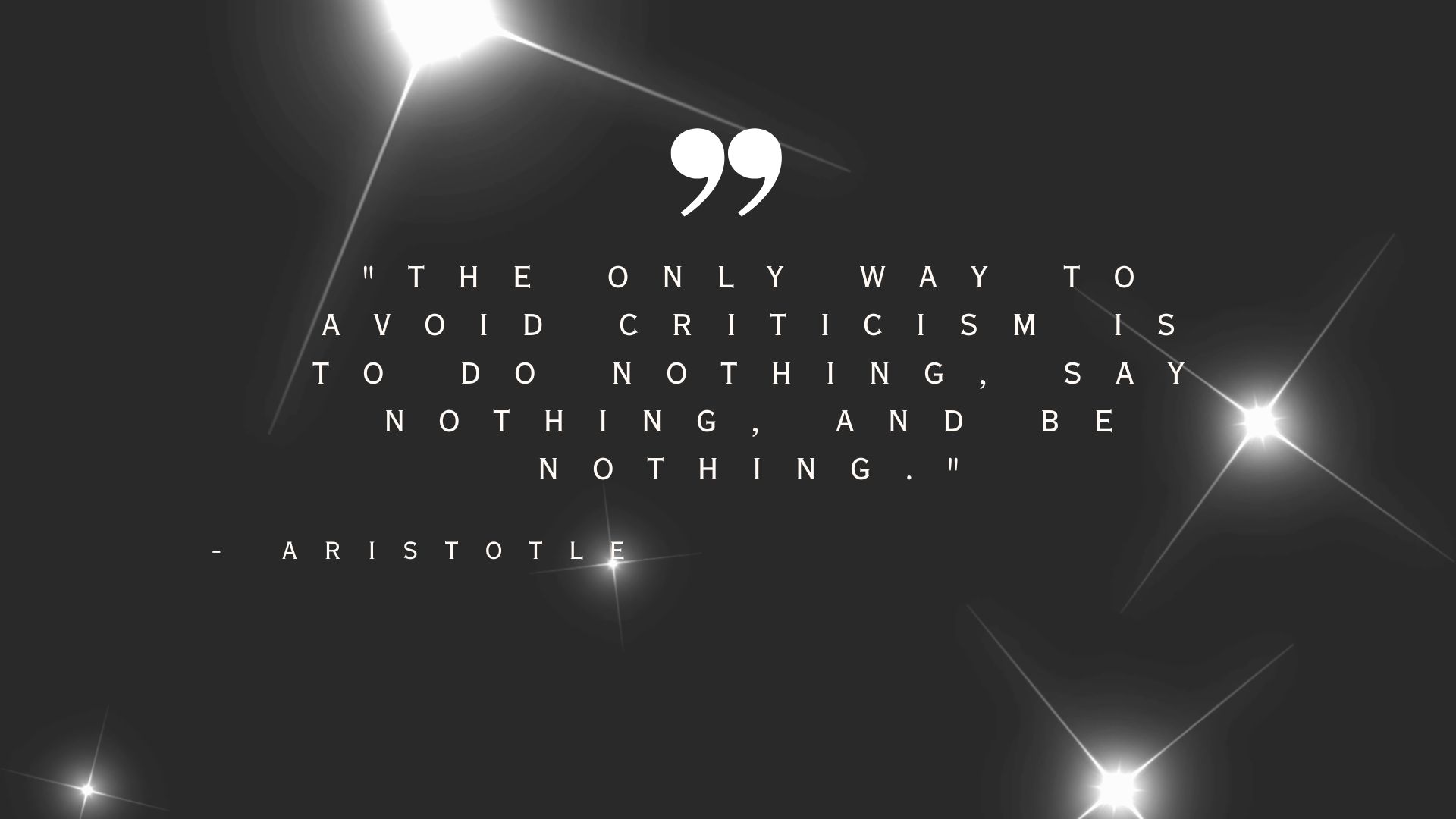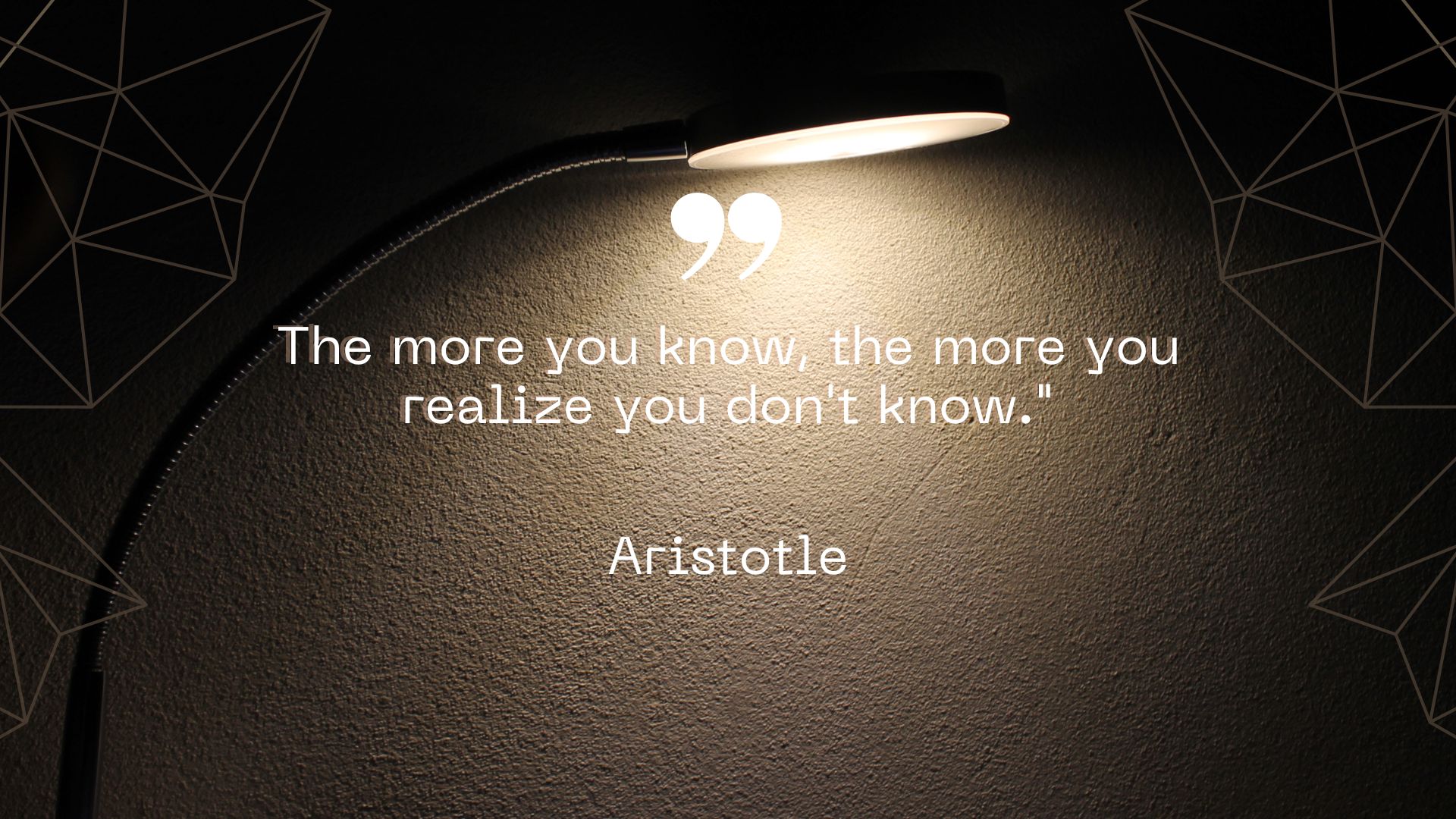“We are what we repeatedly do. Excellence, then, is not an act but a habit.”
Aristotle—
Aristotle, a renowned philosopher of ancient Greece, once proclaimed, “We are what we repeatedly do. Excellence, then, is not an act but a habit.” This thought-provoking quote encapsulates a profound insight into human behavior and the nature of excellence. Delving into its meaning reveals a timeless wisdom that continues to resonate in our modern lives.
Breaking Down the Quote:
1. The Power of Repetition: Aristotle’s assertion, “We are what we repeatedly do,” emphasizes the profound impact of our daily actions and behaviors. It underscores the idea that our character and identity are not formed by isolated instances of success or achievement, but rather by the consistent patterns of behavior that we exhibit over time. Just as a single drop of water cannot create a river, isolated actions cannot define us. Instead, it is the accumulation of these actions that molds our character.
2. Redefining Excellence: In the latter part of the quote, Aristotle challenges our conventional understanding of excellence. He posits that excellence is not a fleeting moment of brilliance or a single remarkable achievement. Instead, he asserts that excellence is an outcome of habit, suggesting that consistent, intentional, and virtuous behaviors lead to a state of excellence. In other words, excellence is not a one-time event but a continuous state of being that is cultivated through habitual actions.
3. Habitual Nature of Virtue: Aristotle’s insight points to the intrinsic connection between excellence and virtuous habits. He implies that the pursuit of excellence is intertwined with the cultivation of virtuous behaviors, which become ingrained through repetition. Virtues such as honesty, diligence, compassion, and integrity are not isolated acts but habitual choices that shape our moral compass and contribute to our overall excellence.
4. Overcoming Mediocrity: The quote also serves as a call to action, inspiring individuals to transcend mediocrity. By acknowledging that excellence is a product of consistent habits, Aristotle challenges us to examine our daily routines and behaviors. It encourages us to discard complacency and actively seek opportunities to engage in actions that align with our aspirations and values, thereby elevating our pursuit of excellence.
Conclusion: Aristotle’s timeless wisdom in the quote, “We are what we repeatedly do. Excellence, then, is not an act but a habit,” underscores the profound influence of habits on our character and achievements. It reshapes our understanding of excellence from a sporadic event to a continuous state cultivated through virtuous habits. This philosophy invites us to take a closer look at our daily choices and behaviors, recognizing their power to shape our identity and propel us towards a life marked by excellence.




